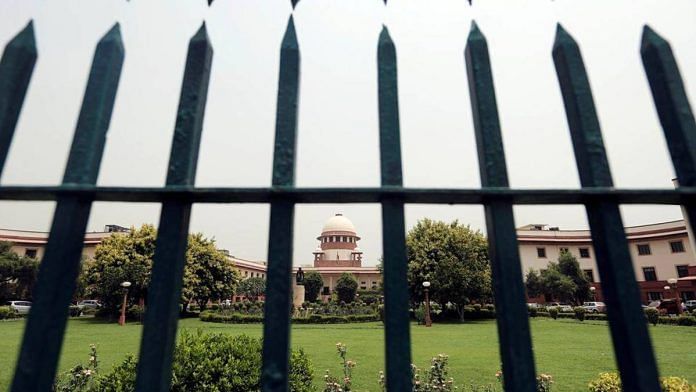In a landmark decision on Monday, the Supreme Court affirmed the government’s move to revoke Article 370, thereby eliminating the special status of Jammu and Kashmir. Contrary to the apprehensions of those predicting turmoil and unrest in the region, the aftermath of this verdict has debunked the fear-driven narratives. Amid the extensive debates surrounding the removal of Article 370, my focus lies on the tangible impact of such decisions on the lives of everyday citizens, particularly those belonging to marginalised groups.
As a Pasmanda Muslim, it was truly disheartening to discover that policies aimed at achieving inclusive development through social justice were not implemented in Jammu and Kashmir before 2019, owing to its special status. I empathise completely with Bahujan Samaj Party supremo Mayawati’s endorsement of the abrogation of Article 370, as it paves the way for the implementation of comprehensive public welfare and caste-based policies in the region.
Those who dismiss the existence of casteism in Muslim-majority Kashmir are oblivious to reality. The community of sanitation workers there endure derogatory terms like ‘watal.’ This community lives in isolation. And despite sharing the same Kalma, other Kashmiri Muslims often choose to sever ties with them. Video Volunteers created a poignant documentary in 2018, shedding light on the discrimination faced by the community that resides in ghettos known as Sheikh colonies.
Also Read: 4 years on, Kashmir is changing. All because of Modi-picked Manoj Sinha’s healing touch
Equality for marginalised communities
The Jammu and Kashmir Reservation Act of 2004 designated ‘socially and educationally backward classes’ as ‘social castes’, the region’s equivalent to Other Backward Classes (OBCs). It provided a 2 per cent reservation for these castes in both employment and professional institutes, it paled in comparison to the 27 per cent reservation for OBCs in the rest of India. Currently, it stands at 4 per cent.
The abrogation also allowed all the provisions of the Constitution, including the Safai Karamcharis Act of 1993 to be applied in the state. In the past four years, the OBC community in Jammu and Kashmir has been identified for the first time. It is a massive win for the marginalised community, as they can access their constitutional rights.
In addition to the positive impact on marginalised communities, it is heartening to witness the advancement of women’s equality in the region. Previously, if a woman from Jammu and Kashmir married a man from outside the state, she lost the right to purchase property in J&K, and her husband was not considered a resident, which meant he was unable to inherit or acquire property. This discriminatory practice limited women’s rights and freedom to choose their life partners.
However, as per a 2021 notification from the central government for the Union territory of Jammu and Kashmir, husbands now gain domicile status, even if they don’t reside in the region. They can purchase land and apply for government jobs.
Central policies are paving the way for further progress. On 12 December, Lok Sabha passed a Bill to reserve 33 per cent of seats for women in the assemblies of the Union territory of Jammu and Kashmir—an important step towards empowering women.
Also Read: Article 370 chapter is closed. Time for US-China to show they can learn, unlike Pakistan
Peace begets prosperity
While the children of separatist leaders lived in opulence, others endured the harsh consequences of the conflict.
The abrogation of Article 370 has extended protection to these ‘others’. Even if you believe that the Indian State has not handled the situation perfectly, one cannot deny the overwhelming sense of peace that has permeated the region.
The data speaks volumes: Between 2016 to 2019, the state recorded a staggering 5,050 incidents of stone-pelting which reduced to a mere 445 post-abrogation, marking an astonishing 92 per cent decrease. Between August 2016 and August 2019, 124 innocent lives were lost in protests and stone-pelting incidents, and in the subsequent four years, after the abrogation, there have been no reports of such deaths. Moreover, instances of civilian casualties during law and order situations dropped to an awe-inspiring zero in the post-Article 370 period.
Jammu and Kashmir stands as a shining example of the proverb ‘peace begets prosperity’. Over the past two years, the Union territory has attracted investment proposals amounting to a staggering Rs 81,122 crore, a notable departure from the total private investments of Rs 14,000 crore since Independence. The UT embraced a remarkable 1.88 crore tourists last year, a true testament to its magnetic allure. With eager anticipation of sustained growth, the administration sets its sights on surpassing the two-crore tourist mark this year.
Also Read: SC verdict on Article 370 settles J&K question. But it dilutes powers of states
Cultural activities are back
Jammu and Kashmir, after a hiatus of 23 years, welcomed its first cinema hall. In a region marred by the shadows of terrorism and separatism, this seemingly ordinary occurrence carries profound significance.
The closure of all cinema halls in the Kashmir valley on 31 December 1990, amid the rising tide of terrorism, marked a dark chapter in the region’s cultural landscape. The reopening signals a shift, a testament to the resilience and gradual restoration of normalcy. It is not merely about the cinematic experience; it represents a reclaiming of spaces and expressions that were suppressed for decades. In this same state, where an all-female rock band disbanded in 2012 due to threats and a fatwa from a local Muslim cleric, the revival of cultural activities will give space to the burgeoning talent and spirit of the Kashmiri youth. It stands as a symbol of defiance against the forces that once sought to silence creativity and expression.
Nothing surpasses the significance of prioritising peace and the well-being of civilians. I strongly believe that the abrogation of Article 370 has transformed the region.
Amana Begam Ansari is a columnist and TV news panelist. She runs a weekly YouTube show called ‘India This Week by Amana and Khalid’. She tweets @Amana_Ansari. Views are personal.
(Edited by Theres Sudeep)



